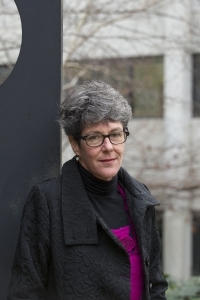Lisa Waller

After working as a journalist on newspapers including The Canberra Times, The Australian and the Australian Financial Review, Lisa is familiar with the practices of journalism and the workings of newsrooms. Her interest as an early career researcher in Journalism Studies is not so much what happens on editorial floors or on journalists’ rounds, but conceptualising how journalism affects different areas of society. She is particularly interested in theories of how media power operates. Her work on the ‘Australian news media and Indigenous policymaking 1988-2008’ project documents how news has shaped the Northern Territory’s bilingual education policy. Another recent research project at Deakin University, where she lectures in Journalism, examines how media power is exercised by journalists through the changing cultural practice of shaming people who come before the courts accused of minor offences.
Lisa aims to contribute to the discipline of Journalism Studies through research that develops new theories and methodologies and advocates for the media rights of marginalised people. She also writes works of academic journalism using the methodologies she has developed, based in her research findings. Inside Story and Arena Magazine have published some of the journalism written as part of the ANIP project.
Lisa is an award-winning textiles maker and examples of her work can usually be found in The Alice Springs Beanie Festival exhibition, which is held each June. She has conducted a number of workshops with Anangu on the APY Lands in South Australia, at Ernabella and Mimili. These workshops produced beautiful work which is part of the national Beanie Festival touring exhibition. Her ongoing relationship with Anangu, the first people to have a bilingual education program in Australia, inspired her to focus on an Indigenous language policy for her PhD study. She is pleased to have undertaken research that advocates for Indigenous peoples’ right to learn in and use their own languages and contributes to their struggle for self-determination.

